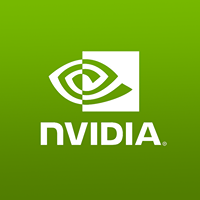Nvidia's Supreme Court Gamble: A Fight for Securities Fraud Accountability
November 14, 2024, 12:12 am
Facebook
Location: United States, California, Menlo Park
The U.S. Supreme Court recently took center stage in a high-stakes legal drama involving Nvidia, the artificial intelligence chipmaker. This case is not just about Nvidia; it’s a litmus test for how securities fraud lawsuits will be handled in the future. The courtroom buzzed with tension as arguments unfolded, revealing the intricate dance between corporate interests and investor protections.
Nvidia stands accused of misleading investors about its revenue streams, particularly those tied to the volatile cryptocurrency market. The stakes are high. If Nvidia wins, it could set a precedent that makes it harder for investors to hold companies accountable for alleged fraud. The implications ripple through Wall Street, where trust is as fragile as glass.
The case traces back to 2018, when a class action lawsuit was initiated by E. Ohman J:or Fonder AB, a Swedish investment firm. They claim Nvidia downplayed the extent to which its sales were buoyed by cryptomining—a process that surged in popularity as cryptocurrency prices skyrocketed. As the crypto bubble burst, Nvidia's stock took a nosedive, leaving investors in the lurch.
The Supreme Court's decision will hinge on a critical question: Did the plaintiffs meet the legal threshold set by the Private Securities Litigation Reform Act of 1995? This law was designed to filter out frivolous lawsuits, but its application can be murky. Nvidia argues that the plaintiffs failed to provide sufficient evidence that the company knowingly misled investors. They liken the lawsuit to cotton candy—fluffy and voluminous but lacking substance.
However, the plaintiffs counter that they have gathered enough evidence from former employees and market analyses to support their claims. They argue that Nvidia's CEO, Jensen Huang, made statements that were not just misleading but reckless. The tension in the courtroom was palpable as Justice Ketanji Brown Jackson expressed concern that Nvidia's proposed standard could create an insurmountable barrier for plaintiffs. Her words echoed the fears of many: that the scales of justice might tip too far in favor of corporations.
The backdrop of this case is a broader trend in the judicial landscape. The Supreme Court has previously limited the powers of the Securities and Exchange Commission (SEC), the federal watchdog for securities fraud. This case, alongside another involving Facebook, could further restrict the ability of private litigants to seek justice. The outcome could redefine the balance of power between investors and corporations.
Nvidia's defense is not just about this case; it’s about setting a precedent. If they succeed, it could embolden other companies to adopt similar tactics, knowing that the legal hurdles for investors are higher. The ripple effects could be felt across the tech industry and beyond, as companies might feel less pressure to disclose potentially damaging information.
The Biden administration has sided with the plaintiffs, emphasizing the importance of holding corporations accountable. This adds another layer of complexity to the case, as the government’s stance reflects a growing concern over corporate transparency and accountability. The administration's involvement signals that this is not just a corporate squabble; it’s a matter of public interest.
As the arguments unfold, the courtroom becomes a battleground for competing narratives. On one side, Nvidia paints itself as a victim of an overreaching legal system. On the other, the plaintiffs position themselves as guardians of investor rights, fighting against corporate deceit. The justices listen intently, weighing the implications of their decision.
The outcome of this case is expected by the end of June. Until then, the legal community watches closely. The stakes are high, and the implications are profound. This case is more than just about Nvidia; it’s about the future of securities fraud litigation in the United States.
In a world where technology evolves at lightning speed, the law often lags behind. Investors need protection, but companies also deserve a fair shake. The Supreme Court's ruling will be a pivotal moment in this ongoing struggle. It will either reinforce the walls that protect investors or create new barriers that shield corporations from accountability.
As the dust settles, one thing is clear: the balance of power in the corporate world is shifting. The Supreme Court holds the scales, and its decision will echo through the halls of finance for years to come. Investors are watching, and the stakes couldn’t be higher. The courtroom is not just a place for legal arguments; it’s a stage where the future of corporate accountability is being written.
Nvidia stands accused of misleading investors about its revenue streams, particularly those tied to the volatile cryptocurrency market. The stakes are high. If Nvidia wins, it could set a precedent that makes it harder for investors to hold companies accountable for alleged fraud. The implications ripple through Wall Street, where trust is as fragile as glass.
The case traces back to 2018, when a class action lawsuit was initiated by E. Ohman J:or Fonder AB, a Swedish investment firm. They claim Nvidia downplayed the extent to which its sales were buoyed by cryptomining—a process that surged in popularity as cryptocurrency prices skyrocketed. As the crypto bubble burst, Nvidia's stock took a nosedive, leaving investors in the lurch.
The Supreme Court's decision will hinge on a critical question: Did the plaintiffs meet the legal threshold set by the Private Securities Litigation Reform Act of 1995? This law was designed to filter out frivolous lawsuits, but its application can be murky. Nvidia argues that the plaintiffs failed to provide sufficient evidence that the company knowingly misled investors. They liken the lawsuit to cotton candy—fluffy and voluminous but lacking substance.
However, the plaintiffs counter that they have gathered enough evidence from former employees and market analyses to support their claims. They argue that Nvidia's CEO, Jensen Huang, made statements that were not just misleading but reckless. The tension in the courtroom was palpable as Justice Ketanji Brown Jackson expressed concern that Nvidia's proposed standard could create an insurmountable barrier for plaintiffs. Her words echoed the fears of many: that the scales of justice might tip too far in favor of corporations.
The backdrop of this case is a broader trend in the judicial landscape. The Supreme Court has previously limited the powers of the Securities and Exchange Commission (SEC), the federal watchdog for securities fraud. This case, alongside another involving Facebook, could further restrict the ability of private litigants to seek justice. The outcome could redefine the balance of power between investors and corporations.
Nvidia's defense is not just about this case; it’s about setting a precedent. If they succeed, it could embolden other companies to adopt similar tactics, knowing that the legal hurdles for investors are higher. The ripple effects could be felt across the tech industry and beyond, as companies might feel less pressure to disclose potentially damaging information.
The Biden administration has sided with the plaintiffs, emphasizing the importance of holding corporations accountable. This adds another layer of complexity to the case, as the government’s stance reflects a growing concern over corporate transparency and accountability. The administration's involvement signals that this is not just a corporate squabble; it’s a matter of public interest.
As the arguments unfold, the courtroom becomes a battleground for competing narratives. On one side, Nvidia paints itself as a victim of an overreaching legal system. On the other, the plaintiffs position themselves as guardians of investor rights, fighting against corporate deceit. The justices listen intently, weighing the implications of their decision.
The outcome of this case is expected by the end of June. Until then, the legal community watches closely. The stakes are high, and the implications are profound. This case is more than just about Nvidia; it’s about the future of securities fraud litigation in the United States.
In a world where technology evolves at lightning speed, the law often lags behind. Investors need protection, but companies also deserve a fair shake. The Supreme Court's ruling will be a pivotal moment in this ongoing struggle. It will either reinforce the walls that protect investors or create new barriers that shield corporations from accountability.
As the dust settles, one thing is clear: the balance of power in the corporate world is shifting. The Supreme Court holds the scales, and its decision will echo through the halls of finance for years to come. Investors are watching, and the stakes couldn’t be higher. The courtroom is not just a place for legal arguments; it’s a stage where the future of corporate accountability is being written.

